Submitted by WA Contents
Civil Architecture installs a sundial making our sense of time more understandable
Saudi Arabia Architecture News - Mar 23, 2023 - 11:51 3138 views
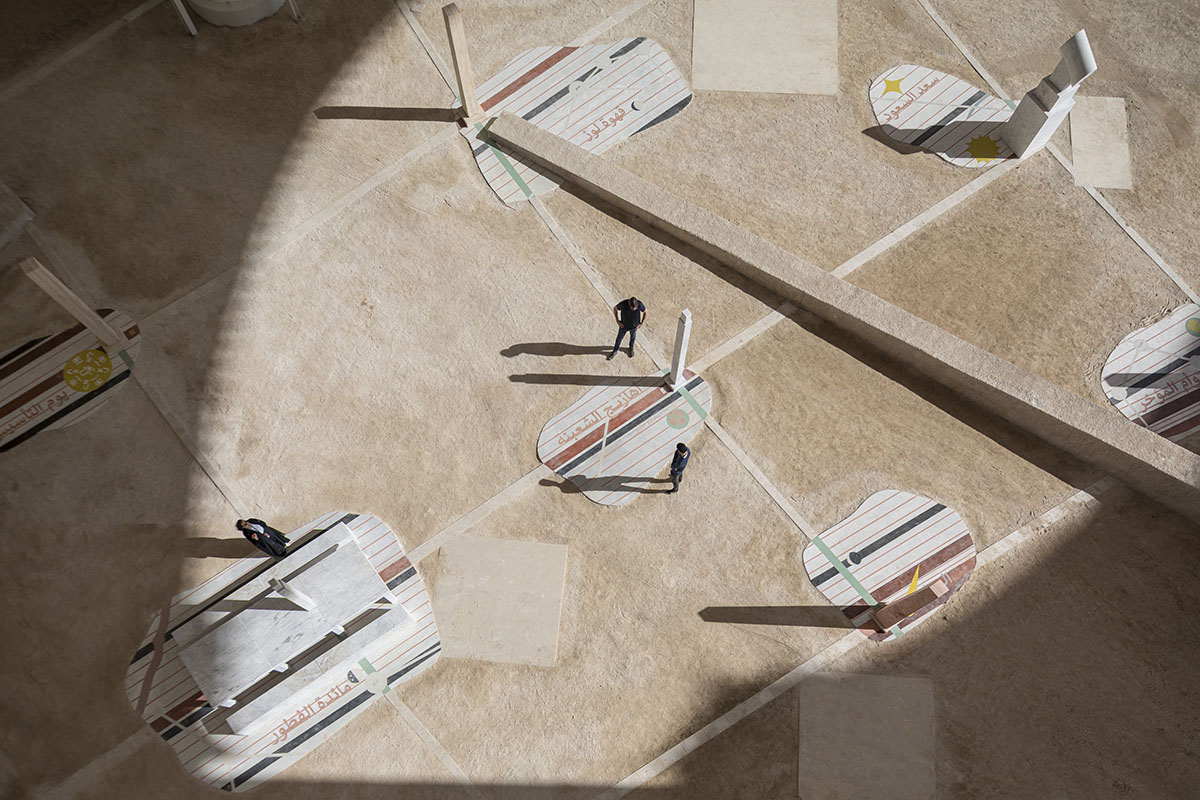
Civil Architecture has created a sundial with the fragments of round-shaped calendar-like notes that make our sense of time more understandable referencing to the courtyards of mosques in Islamic Architecture.
Envisioned as fragmented, sculptural pieces within the desert-like landscape created by OMA, Civil Architecture, led by architects Hamed Bukhamseen and Ali Ismail Karimi, have reimagined the sundial based on the Islamic references in Jeddah, Saudi Arabia.
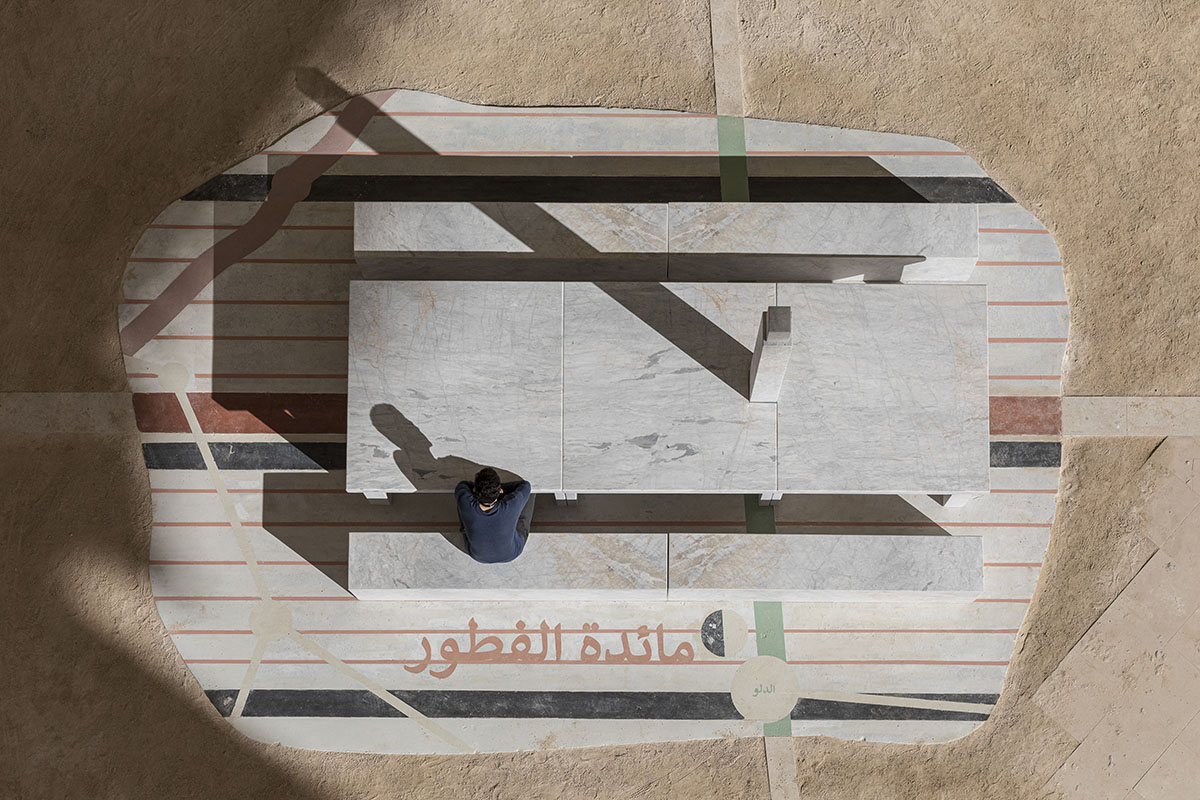
Image © Laurian Ghinitoiu
Sundials were used as indicators to show the time of the five daily prayers in the Islamic world - they were used either on the walls or the courtyards of mosques.
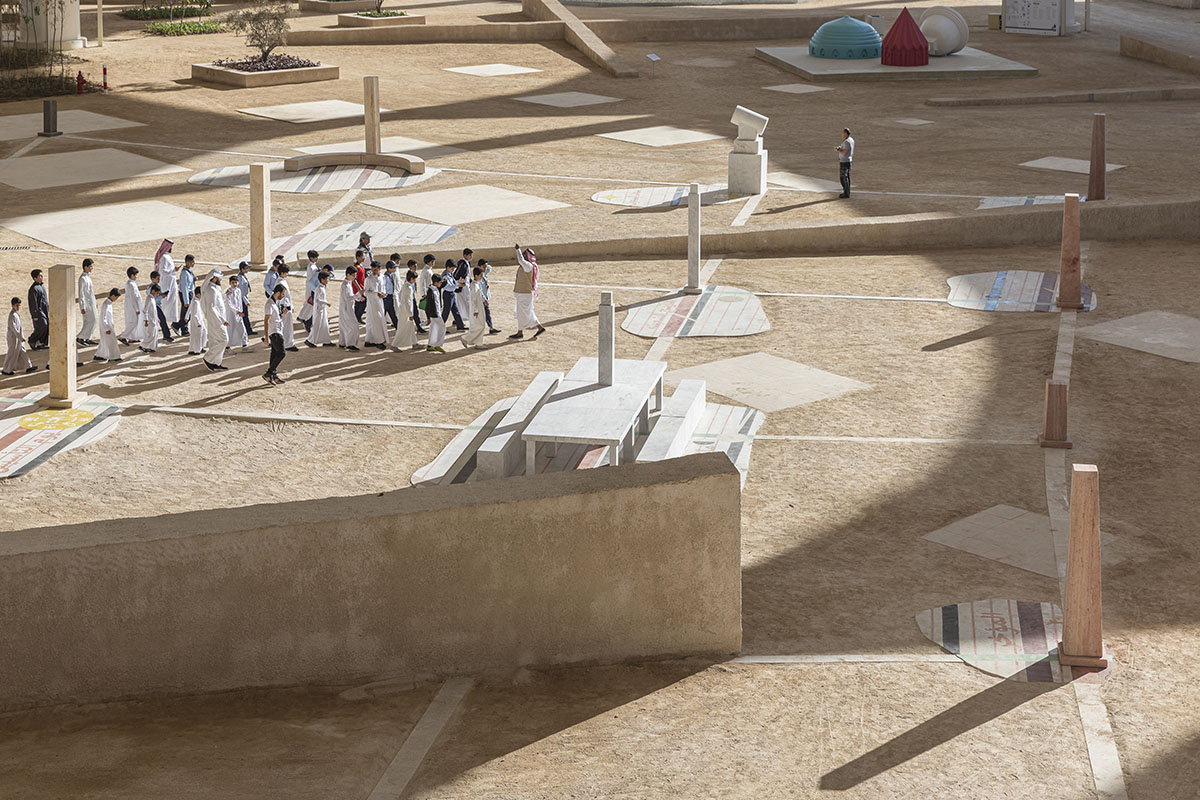
Image © Laurian Ghinitoiu
Commissioned by the Diriyah Biennale Foundation for the Islamic Arts Biennale 2023, the exhibition is on view under the artistic direction of Sumayya Vally, the founder of Johannesburg-based architecture practice Counterspace.
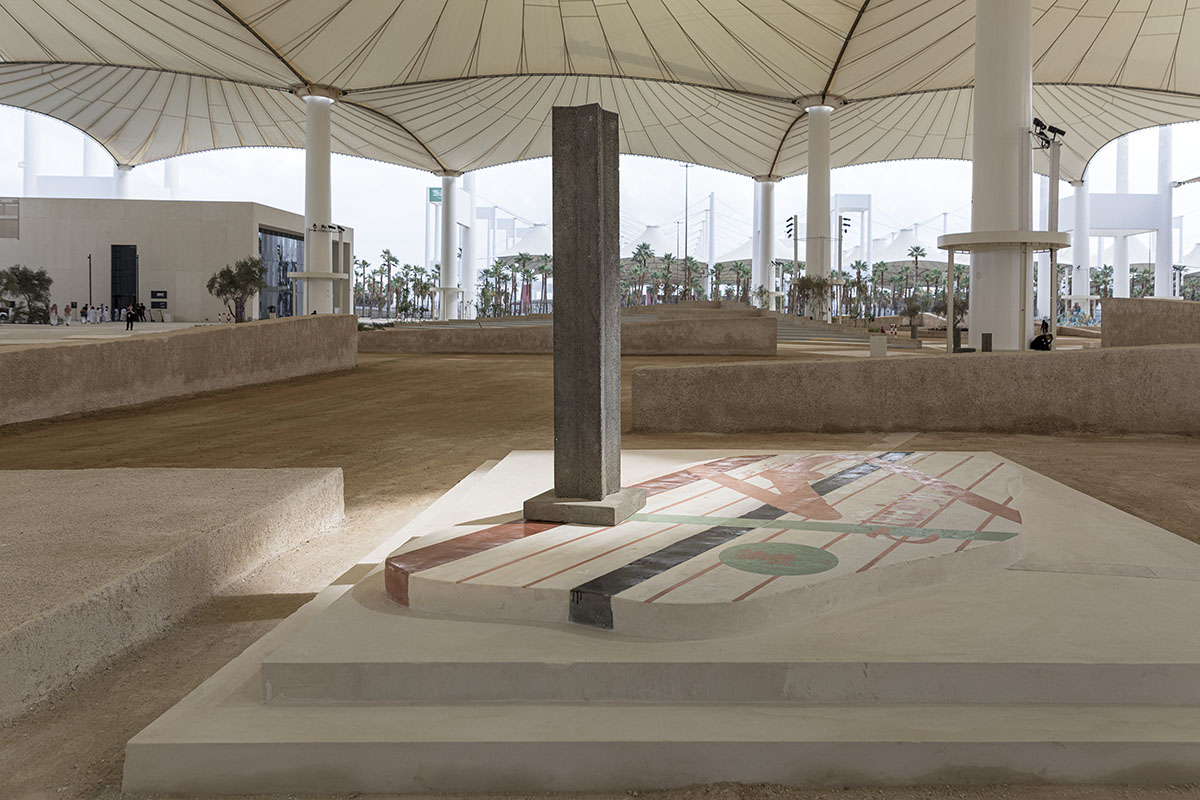
Image © Laurian Ghinitoiu
Hamed Bukhamseen and Ali Ismail Karimi have installed a series of obelisks raised on undulating platforms.
Each obelisk, acting as hour makers, are placed on a gridded layout with paper-like, colorful calendar notes to indicate the events which will take place during the biennale.
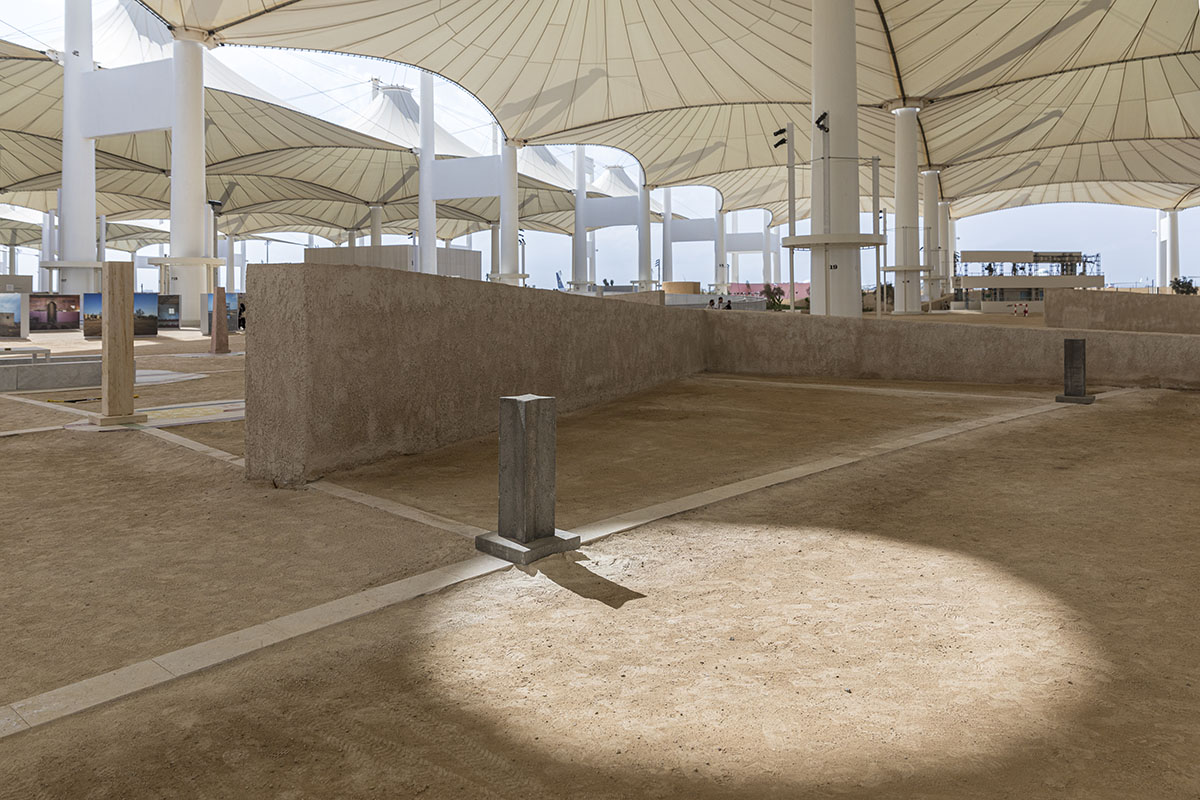
Image © Laurian Ghinitoiu
"Traditionally, mosque courtyards featured a sundial that indicated the time of the five daily prayers, and mosques served as spaces where the general public could align their sense of time with the movement of the heavenly bodies," said Civil Architecture.
The architects are inspired by the architecture of the Hajj Terminal, designed by Skidmore, Owings & Merrill in 1981, which was the recipient of the 1983 Aga Khan Award for Architecture.
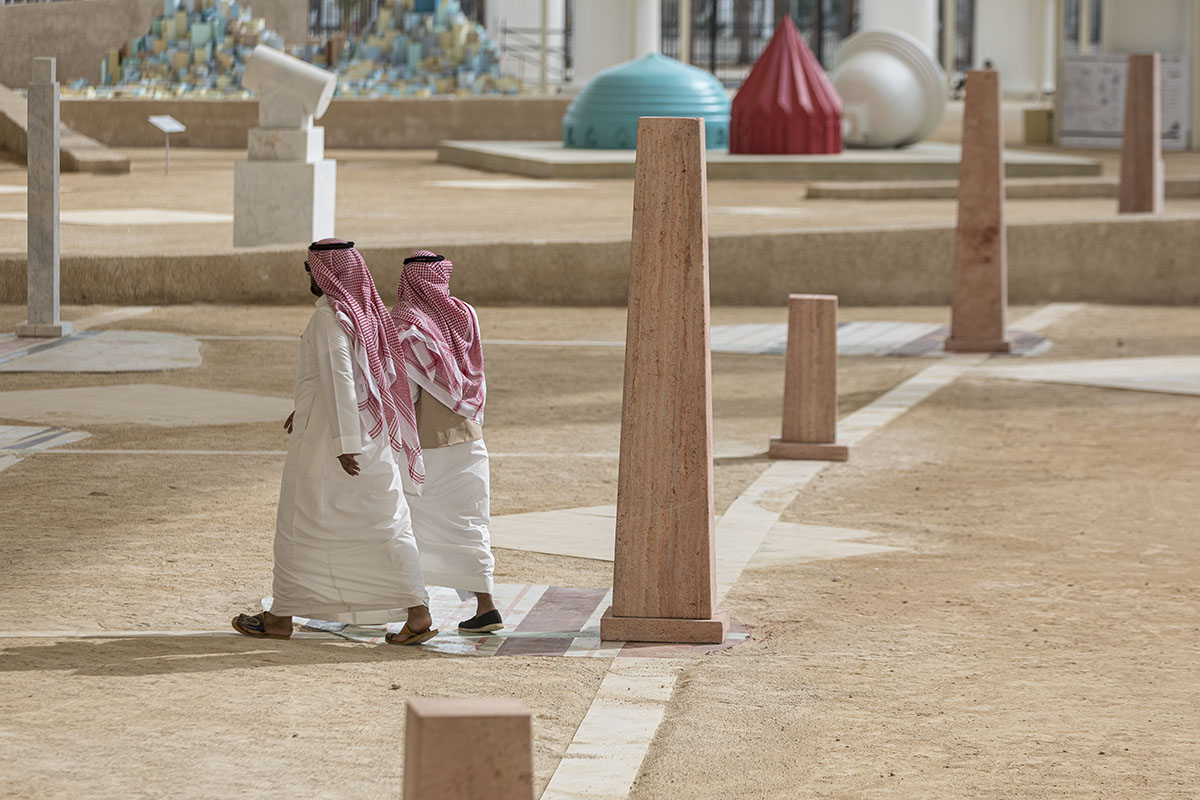
Image © Laurian Ghinitoiu
The installation, called Sun Path, Rajab to Shawwal 1444, emerges as a test of time by adapting the visitor's body and movement in context of a modern intepretation of an orientation tool.
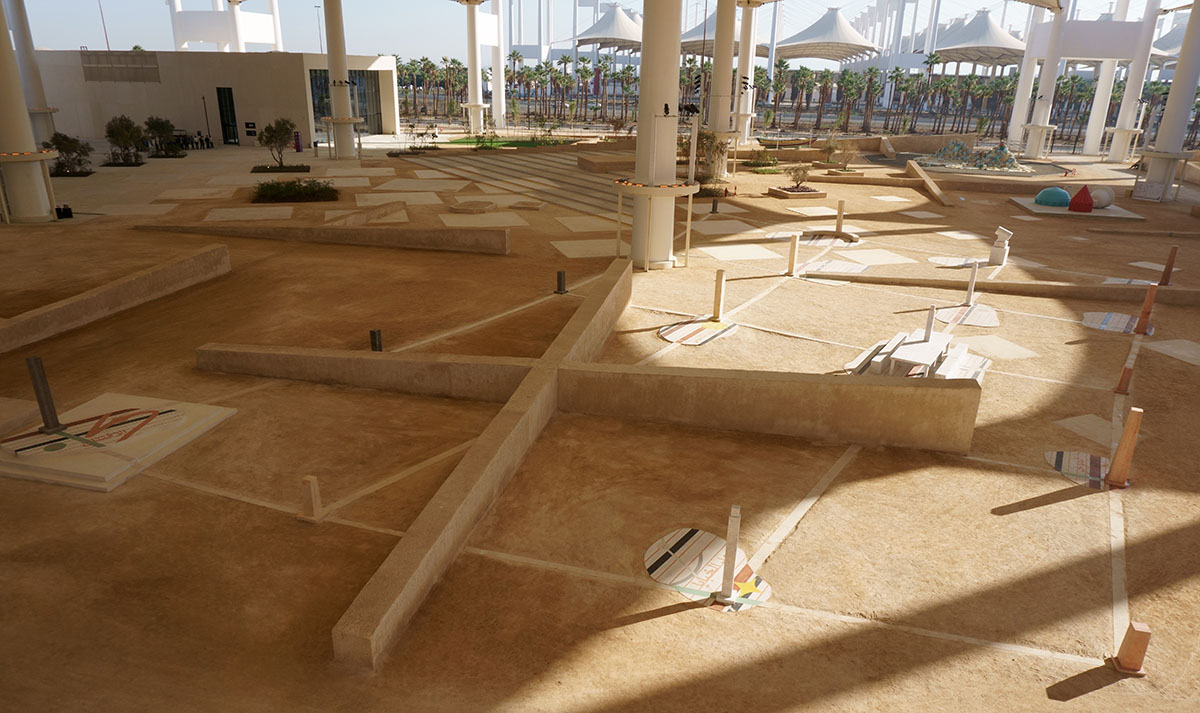
Image © Ali Ismail Karimi
"The round opening (oculus) in each unit of the terminal’s canopy, which limits the amount of direct sunlight passing into the space below, acts as an inverted sundial," said the studio.
"The installation in turn tracks the movement of a beam of sunlight rather than a cast shadow."

Image © Ali Ismail Karimi
"This sunbeam passes over lines on the ground corresponding to the hours, months, and seasons, as well as sculptural objects that indicate significant moments in Islamic history and refer to the Biennale’s public program," added the studio.
"Our sense of the sun’s movement and the color of the sky provide a general indication of the hour, in contrast to the abstract notion of time created by digital clocks," the studio added.
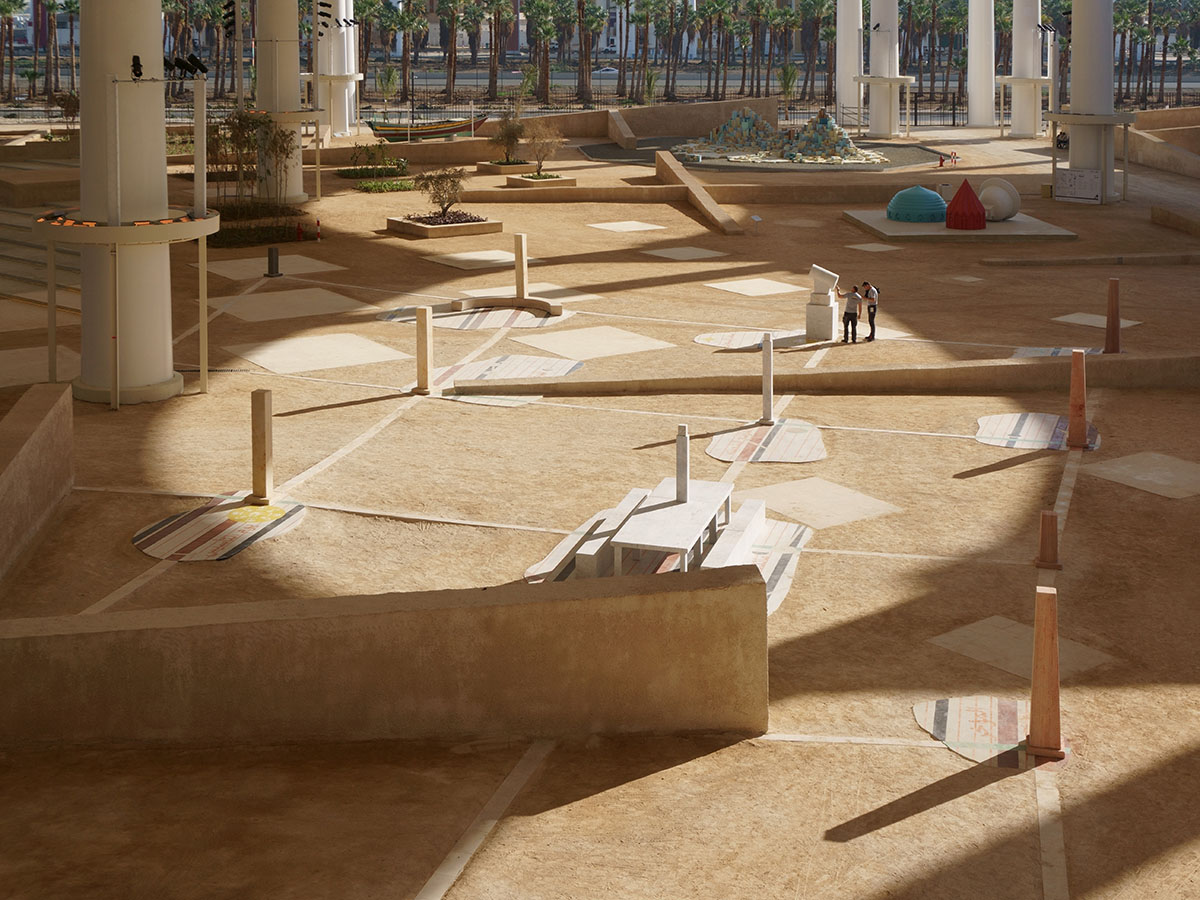
Image © Ali Ismail Karimi
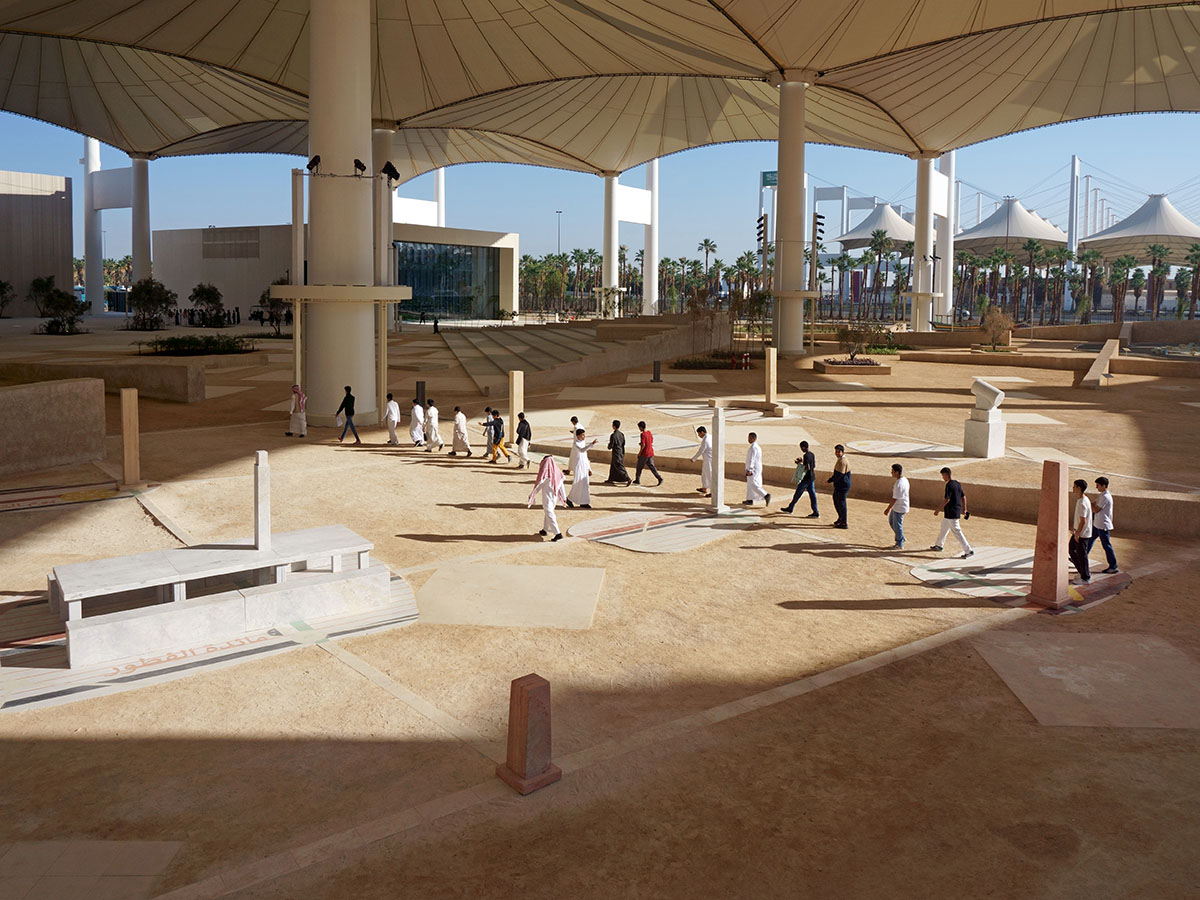
Image © Ali Ismail Karimi
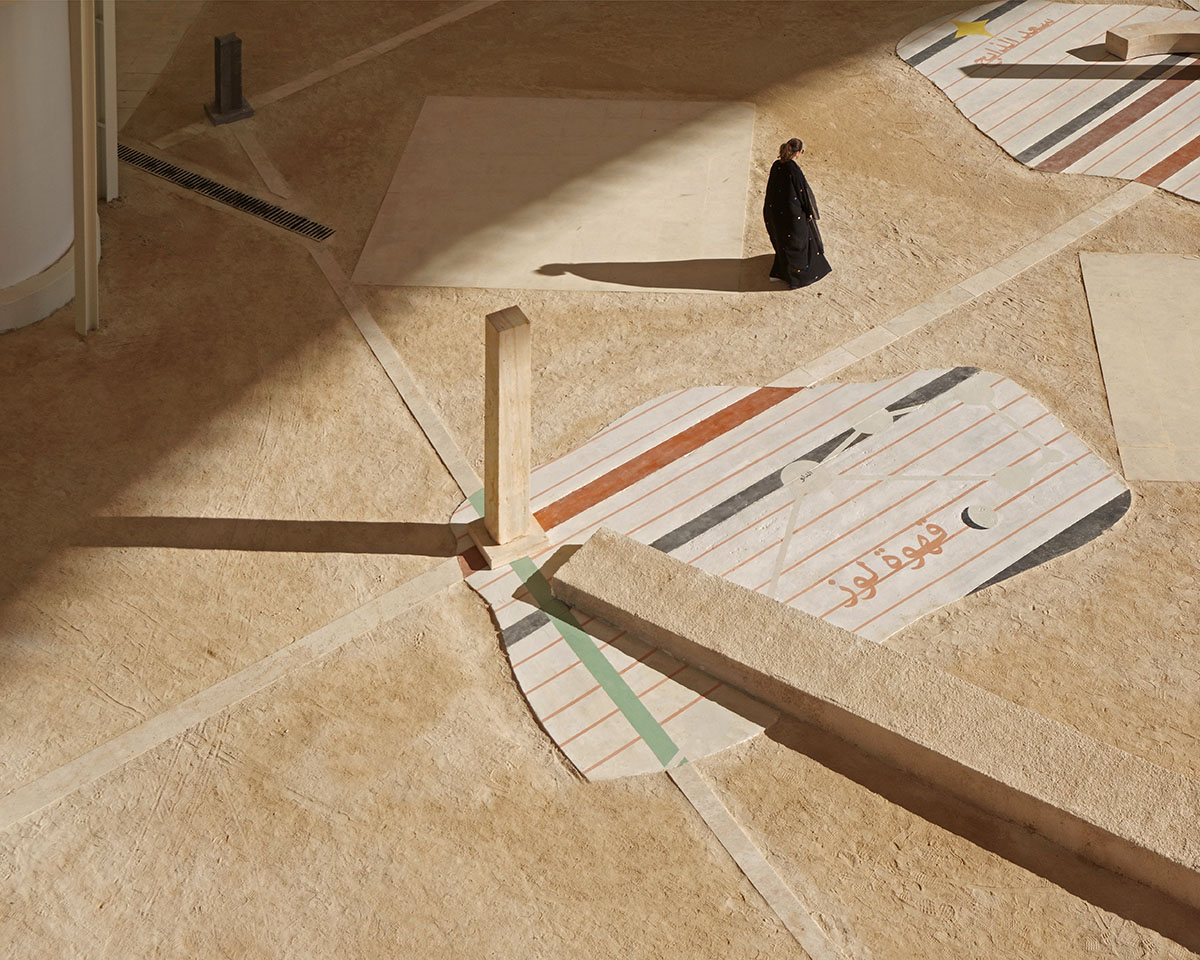
Image © Ali Ismail Karimi
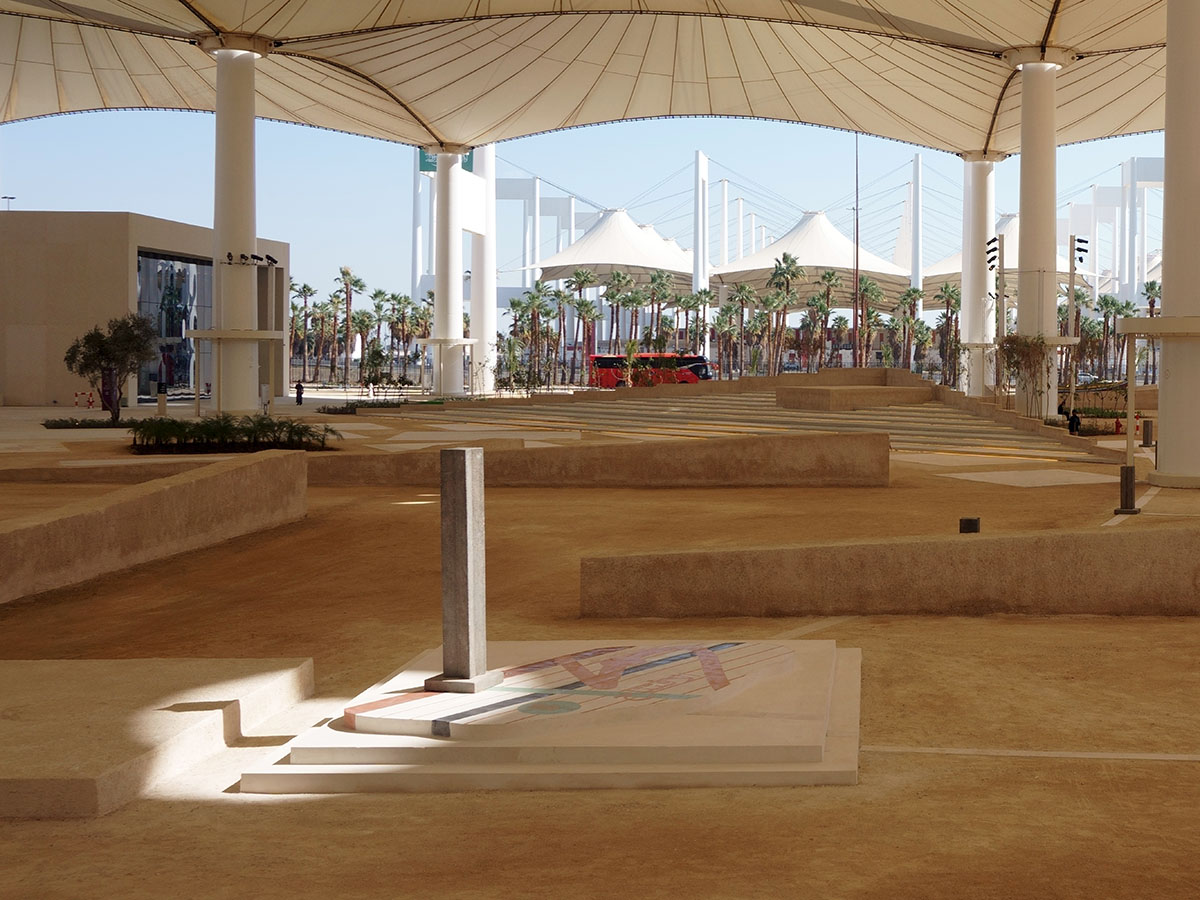
Image © Ali Ismail Karimi
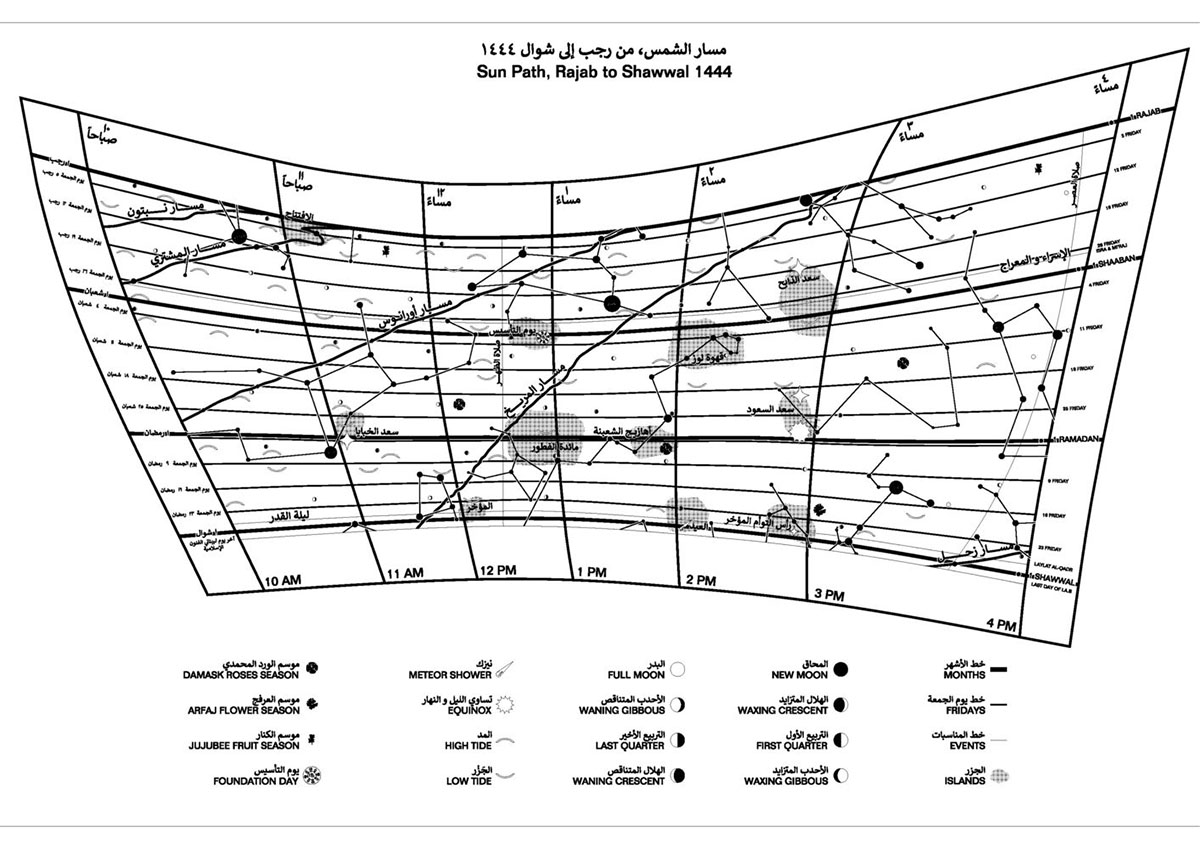
Final stair plaque
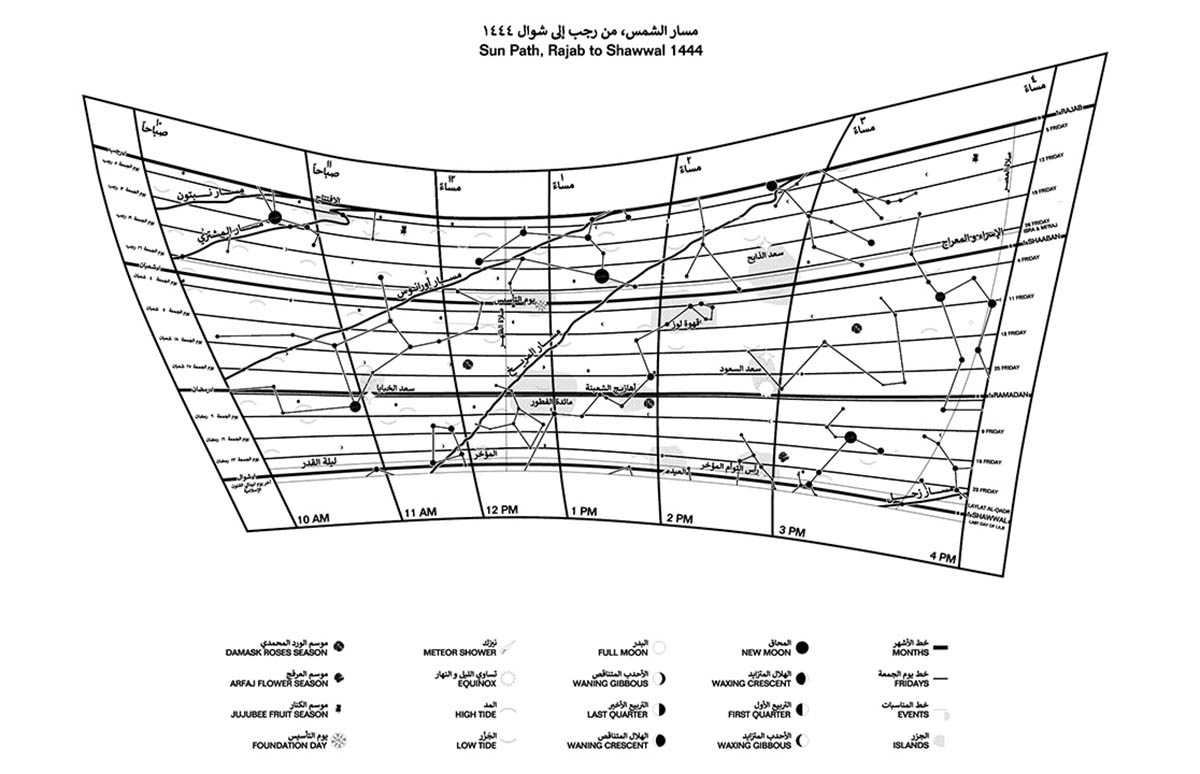
Plan 1
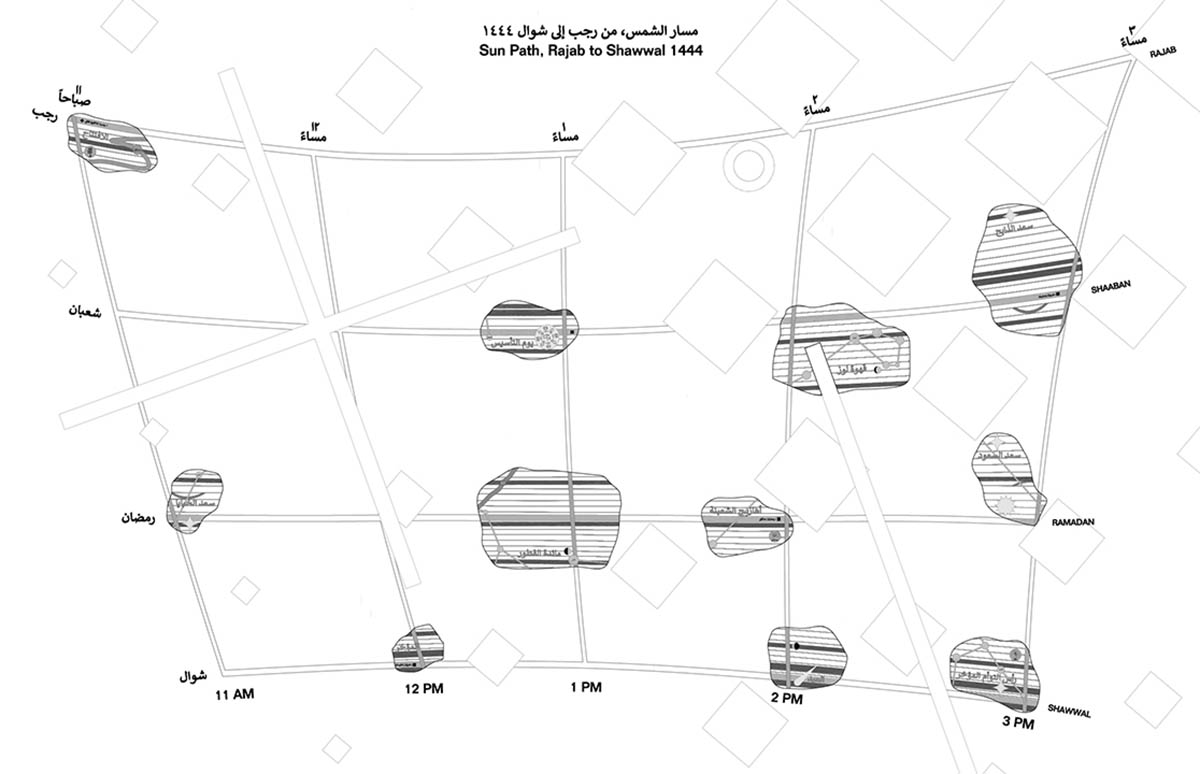
Plan 2
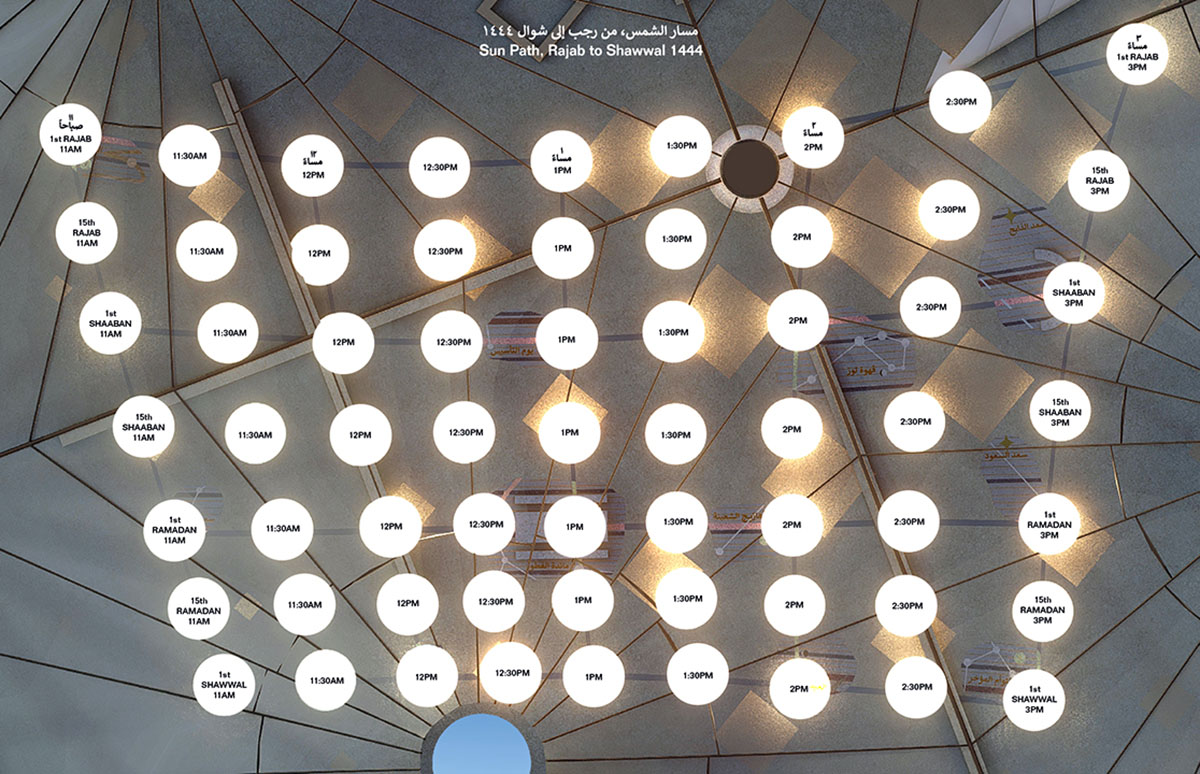
Plan 3
The first ever Islamic Arts Biennale will be on view until 23 April, 2023 in Jeddah.
Project facts
Project name: Sun Path, Rajab to Shawwal 1444
Architects: Civil Architecture
Principal Architects: Ali Ismail Karimi and Hamed Bukhamseen
Project Architect: Fatima Nickahdar
Intern Architects: Mohamed Alkhenaizi, Alzaen Bindayna, and Fatima Fathalla
Curator: Sumayya Vally
Construction: Black Engineering
Client: Diriyah Biennale Foundation
Top image © Laurian Ghinitoiu.
All images © Laurian Ghinitoiu and Ali Ismail Karimi.
All drawings © Civil Architecture.
> via Civil Architecture
